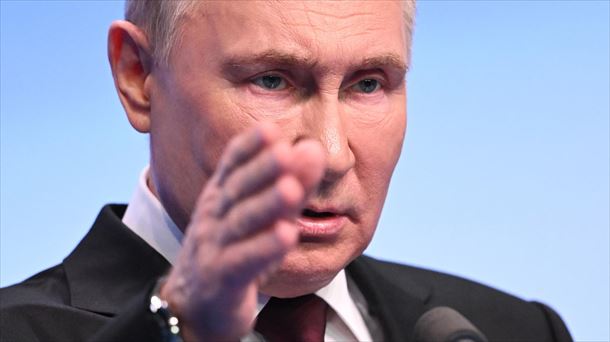The Kremlin sees the criticism as “absurd” and claims 87% of the votes obtained by the president.
The victory of the Russian president, Vladimir Putinin the elections that concluded on Sunday represents for Western governments the confirmation of a repressive tendency that leaves no room for a minimum of dissent. Without independent international observers, question the legitimacy of the process and the overwhelming majority granted to Putin by local authorities.
For the High Representative for Foreign Policy of the EU, Josep Borrell, were neither free nor fair elections, but rather had “repression” and “intimidation” as their only pillar. No relevant opposition candidate could stand up to Putin, who forced the vote even in the occupied areas of Ukraine.
France “takes note” of the results, but agrees that “once again the conditions were not met to speak of free, plural and democratic elections”, among other things because none of Putin’s rival theorists were opposed to the invasion of ukraine.
It was an “election without options”, as the German Foreign Minister has pointed out, Annalena Baerbockwhose department has spoken directly about “pseudo-elections” in a message on social networks in which it has also criticized Putin’s “authoritarianism” and the violations of International Law in Ukraine.
Along these lines, the British Foreign Minister, David Cameronrecalled that holding the elections in “Ukrainian territory” is “illegal”, in a message on social networks in which he also highlighted the lack of real alternatives on the ballot and the absence of observers from outside the Kremlin.
The White House also assumes as “obvious” that these elections cannot be considered democratic given that Putin “has imprisoned political opponents and prevented others from running,” although some of the harshest qualifiers against the Russian president have come from mouth of his Ukrainian counterpart, Volodymyr Zelenskywho has not hesitated to call him a “dictator” and say that he is “drunk with power.”
The Kremlin’s main spokesman, Dimitri Peskovhowever, sees it as “absurd” that the legitimacy of the elections can be questioned and has suggested that casting doubt on the process in general terms also implies doubting the votes awarded to Putin, which would exceed 87% of the total.
Source: Eitb
I am Michael Melvin, an experienced news writer with a passion for uncovering stories and bringing them to the public. I have been working in the news industry for over five years now, and my work has been published on multiple websites. As an author at 24 News Reporters, I cover world section of current events stories that are both informative and captivating to read.

